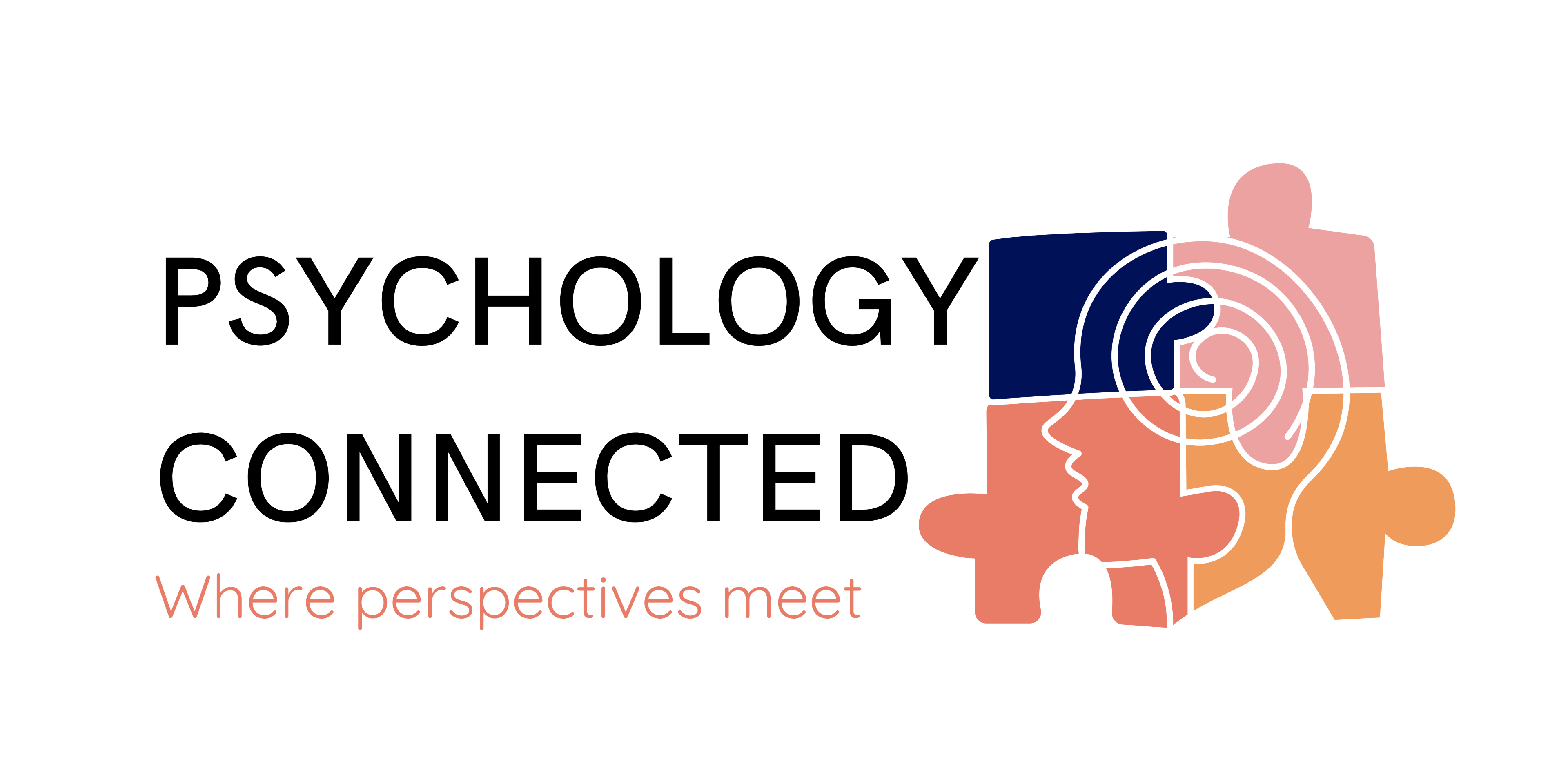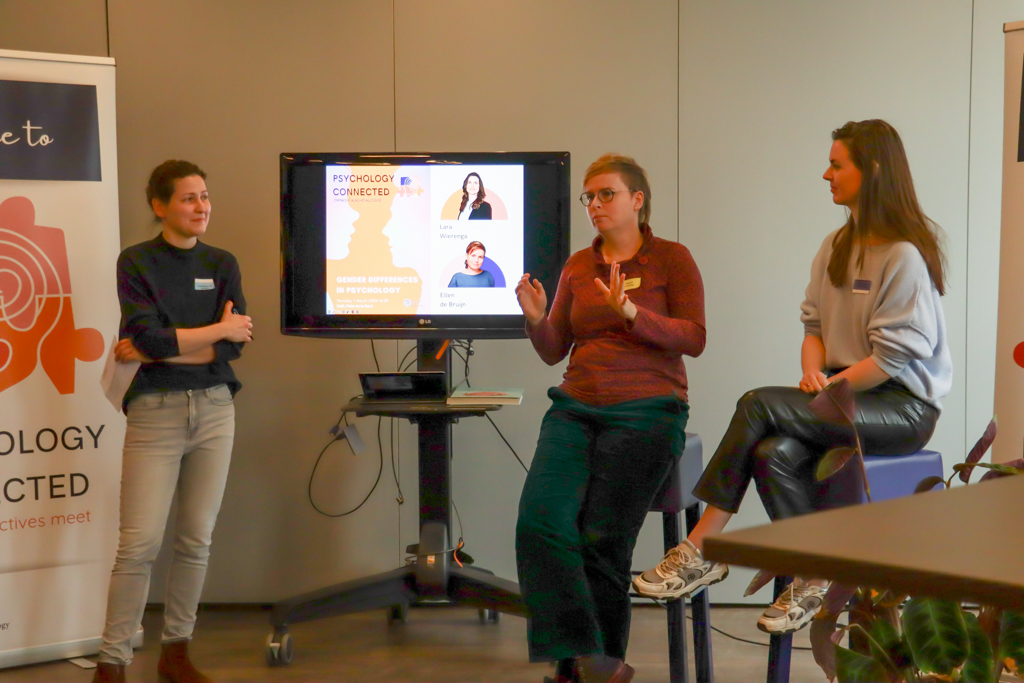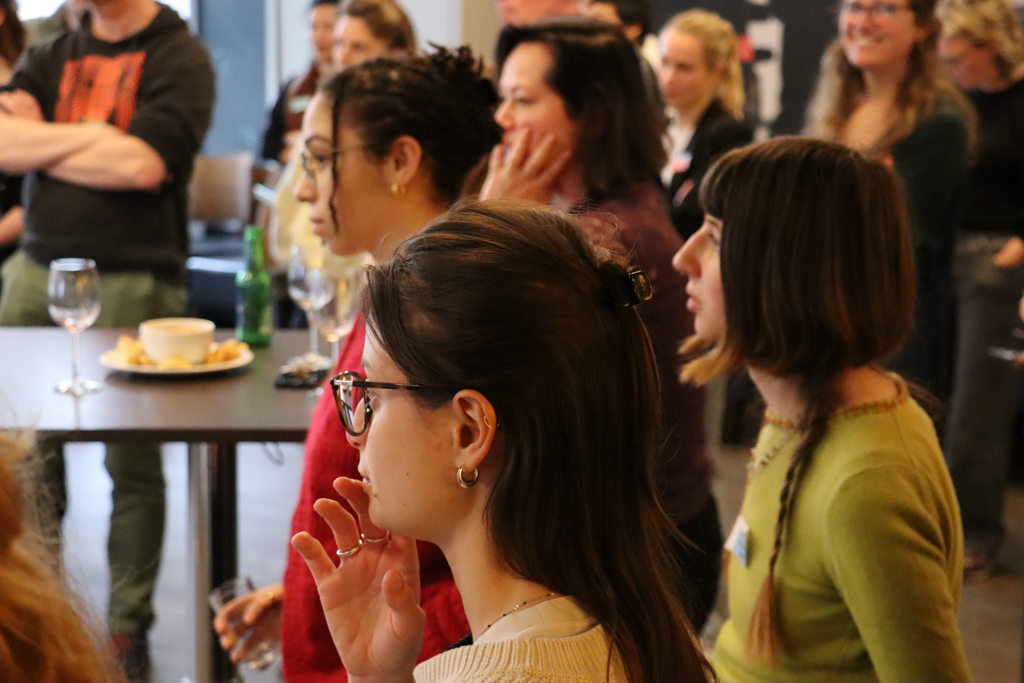
Psychology Connected on gender differences: 'More research done on extraterrestrial life than the female body'
In medical and psychological sciences, little research has been specifically conducted on women. Hormonal fluctuations were considered too intricate. Yes, research into sex and gender differences is complex, acknowledge neuroscientists Ellen de Bruijn and Lara Wierenga, but that’s precisely why it's so crucial.
It's rather fitting, isn't it, to have a panel discussion with three female researchers on gender differences in psychology leading up to International Women's Day, notes moderator Anna van 't Veer. While women may be well represented at the Institute of Psychology, over the years, scientists have preferred to skip targeted research on the female body. Moreover, there has been little attention given to how developmental disorders such as ADHD or autism manifest in girls and young women, often resulting in non-diagnosis or late diagnosis. Researchers Lara Wierenga and Ellen de Bruijn are keen to shed light on why this is the case and how it can be improved.
Girls have autism too
'At what point did you realise that there is still much ground to cover in research on gender differences?' Anna van 't Veer inquires. 'I was already researching neurodevelopmental disorders such as ADHD and autism. These are more common in men, and a commonly heard explanation for this is that men have a biological vulnerability to these disorders,' Lara Wierenga, university lecturer and author of Atlas of our Brain, explains. 'But I also wanted to understand the socio-cultural influences that lead us to recognise autism much faster in a boy. This also has to do with expectations. If a girl avoids eye contact, society is quicker to comment: 'Hey, be friendly and look the at other person.' About a boy who avoids eye contact, we're more likely to say: 'Oh, that's just him, let him be.'"

Vicious cycle
Thus, a girl with autism learns to adapt more quickly, and symptoms are less likely to come to light. This perpetuates a vicious cycle, emphasises Wierenga. 'If parents or teachers don't link ADHD or autism with girls, those girls won't be included in studies on these disorders. And so, we won't learn how the symptoms manifest in them.'
Women excluded
Ellen de Bruijn, professor of Neurocognitive Clinical Psychology, decided to delve into the female hormonal system because for years, she had to systematically exclude women in her work. 'I initially researched medications, and due to their menstrual cycle, women were not allowed to participate in these studies,' she explains. 'It wasn't clear how their hormonal fluctuations would affect the results, so women weren't included in the research at all. I found this odd: if you don't understand that mechanism, you should learn more about it.'
Half a percent
She points, still somewhat bewildered, to a statistic she came across recently: 'Out of 50,000 recent scientific studies, only half a percent was specifically targeted at women. More research has been done on male baldness, erectile problems, and extraterrestrial life than on the functioning of the female body. I find that shocking.' Therefore, she has focused on how hormones influence the female body and psyche throughout the lifespan: from puberty to menopause. Last year, she received a large ERC grant and VICI grant for this project, after years of lobbying. 'It was long deemed unacceptable that I didn't include any men in the research,' she reveals.
Advice for colleagues
In recent years, public opinion has changed, and funders now recognise the need for research on women or gender differences in general. But how do you go about this in a proper way as a researcher? De Bruijn suggests asking female participants about their hormone use or including the phase of their cycle in the data. Wierenga advises: 'First, make sure you learn and use the correct terms in your setup. Do you want to research gender, sex, or gender identity? These are different things.' She also encourages colleagues to mention gender and sex differences in the data discussion of a paper, even if briefly and even if those differences are still difficult to explain. 'We still know little about how biology, environment, and socio-cultural factors interact,' both conclude. 'And that's precisely why more research is so urgently needed.'

Will you be there next time?
The next edition of Psychology Connected will be on Thursday 30 May 2024 from 16:00 to 18:00, the theme to be announced. Keep an eye on the event page for the latest info.





